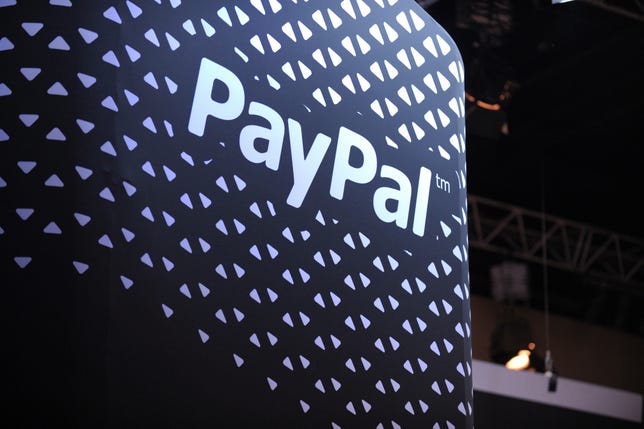
Getty Images
PayPal has yet another critic of its new user agreement: the Federal Communications Commission.
The US regulator sent a letter Thursday to the digital payments company, questioning an amendment in the paperwork requiring users to consent to automated calls and text messages.
“PayPal’s recent amendments to its User Agreement raise serious concerns for the Enforcement Bureau,” the FCC wrote. The letter noted that FCC requirements “directly prohibit” requiring a consumer to consent to autodialed telemarketing calls as a condition of purchasing a good or service.
PayPal will spin off from its parent company eBay later this year; ahead of that split the firms updated their user agreements, which now both include the robocall clause. Complaints about the new clause bubbled over this week when the office of New York Attorney General Eric Schneiderman issued a letter to eBay and PayPal requesting more information on the companies’ proposed changes to the user agreements. The FCC’s letter came two days after the attorney general’s letter.
“We have received a letter from the FCC and look forward to responding,” Amanda Miller, a PayPal spokeswoman, said in a statement Friday. “We strive to be as clear as possible with our customers. … Our customers can choose not to receive autodialed or prerecorded message calls.”
The spat comes at a delicate time for both eBay and PayPal, which are both trying to present themselves in the best light possible before they become separate companies during the third quarter. Any criticisms like the robocall dustup could become costly distractions as they head into the split.
Last month, the Consumer Financial Protection Bureau ordered PayPal to pay $25 million in refunds and fines, stemming from the regulator’s claims the company illegally signed up users for its online credit service.
In an attempt to quell unrest, PayPal last week issued a blog post explaining its rationale behind the amendments to its user agreement. The company’s general counsel, Louise Pentland, wrote that PayPal has “no intention of harassing you.” Pentland added that the use of robocalling is simply about efficiency and not annoyance.
Although eBay’s automated calling policy is similar to PayPal’s, no letter to eBay was listed on the FCC’s website.
The amended eBay user agreement will take effect Monday, while PayPal’s changes will be happen July 1.




